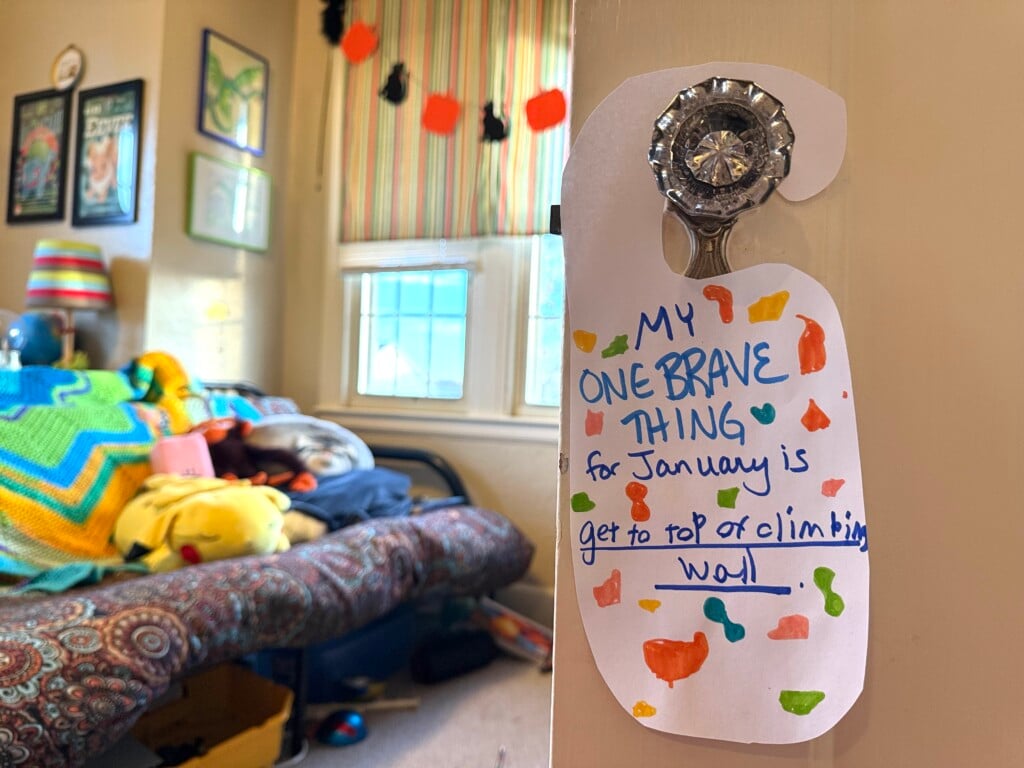Holiday Harmony: Prepping Kids (and Yourself) for Family Togetherness

The winter holidays are supposed to be magical. But sometimes they feel more like mayhem. Somewhere between Pinterest-perfect dreams and real-life logistics, you’re trying to create memories for your kids while managing travel, traditions and extended family dynamics.
So, you pack the car with snacks and extra clothes, remind your kids (again) to be on their best behavior, and then take a deep breath and head into togetherness with some people you adore and others who may try your patience.
Extended family gatherings can be heartwarming, but they can also be exhausting, overstimulating and emotionally complicated for both kids and grown-ups. Thankfully, a little preparation can help your family feel less frayed.
Know That Holiday Family Togetherness Isn’t Always Picture-Perfect
When we picture the holidays, we imagine Norman Rockwell dinners and Hallmark-style moments. But, in reality, you might share a house with a cousin who never lowers his voice, a grandma who critiques your parenting and a toddler coming down from a sugar high.
Pediatric Occupational Therapist Shannon Rolph shares that during family holidays, emotions and expectations often run high, while self-regulation runs low. So it’s completely normal for kids (and even adults) to feel a little on edge.
And kids aren’t the only ones who feel it. A recent American Psychological Association survey found that 89% of adults feel increased stress around the holidays, with family gatherings being one of the top triggers. Add children who thrive on routine into that mix of unpredictability and unfamiliar rules, and everyone can quickly become overwhelmed.
Understand the Power of a Heads-Up
One of the most powerful things you can do to help kids through extended family time is to talk openly about it ahead of time. Start early and address what they can expect. Tell them who will be there, how the days might unfold, and how they can politely step away if they feel overwhelmed.
For example, you might explain, “Aunt Carol might ask about your school a lot. That’s how she connects. You can just smile, give her a polite answer, and come find me if it feels like too much.” That kind of scripting helps kids feel prepared, not pushed.
Psychologist Laura Markham, author of “Peaceful Parent, Happy Kids,” encourages parents to “coach, not control.” Let your child know you’re on their team to help them navigate challenges, not just monitor their behavior.
Demonstrate Both Manners and Boundaries
Family members often mean well, but holiday gatherings can come with a flurry of sudden affection, food and unsolicited life advice. If your child seems shy or clingy, it’s not necessarily rudeness. It may be their nervous system going on high alert.
Instead of forcing politeness, model it yourself, and protect their boundaries. And if someone pushes too hard? Try something like, “Thanks for offering, but he’s taking a tiny break right now. Maybe later.” Helping kids learn the language to set polite boundaries with your support shows respect without asking them to sacrifice their comfort to make adults happy.
Make Space for Breaks and Routines
Even the most even-keeled child can melt down when there’s no nap, five adults talking at once and holiday sweets within arm’s reach. Try to build in time for them to regroup. Even a short walk outside, a quick nap or reading quietly in a spare room can make a big difference.
You might also agree on a “safe signal” your child can give when they need a break. This might be a special word or a gesture, like a quick tug on your sleeve. And don’t forget the basics. Simple things like food, hydration and sleep go a long way in keeping moods steady.
Side-Step Unwelcome Comments
Anytime you gather unique personalities in one space, you’re bound to get unwelcome comments. Zingers like, “She’s still using a pacifier?” or “He is a picky eater,” needn’t derail the holiday.
Licensed Therapist Nedra Glover Tawwab recommends setting what she calls “gracious boundaries” and then moving on. That might sound like, “Thanks for your concern. We’ve got it covered.” Or, “I appreciate your care. Let’s talk about something more fun.”
Focus on Practice, Not Perfection
Many parents worry they’re “failing” when their child refuses to hug Great-Uncle Joe or melts down mid-dessert. But these aren’t failures. They’re just part of life with kids. You’re raising a human, not putting on a performance.
Instead of pointing out what went wrong with your child, celebrate what went right. You might tell them, “You handled it so well when things got a little loud. I saw you take a breath and look for me. That was really smart.” Small affirmations make kids feel safe and more likely to look forward to next year.
Create Space for “Just Us” Traditions
Spending time with extended family is meaningful. These shared experiences help kids build connections, memories and a sense of belonging.
But there’s nothing wrong with carving out time for your own immediate family, too. Some families create a “just us” tradition – whether it’s pizza and pajamas the night before the holiday or a stroll around the neighborhood to see decorations or to walk off dinner. You might ask each family member to choose one simple holiday activity and prioritize doing it together.
Marisa Mansfield, LSW, says, “Traditions worth keeping are the ones where families are making memories together, and where everyone gets to enjoy the moment.” Stress, she says, is one tradition you can skip.
The True Measure of Holiday Success
If you measure holiday success by how perfectly everyone behaved, you’ll always walk away a little disappointed. But if you look for the genuine connections – a cousin sharing a toy, a quiet moment in the car, a belly laugh during charades – you might see that even the messy parts are worth the effort.
8 “Just Us” Holiday Rituals to Ground Your Immediate Family
Big gatherings are great, but tiny traditions count, too. Even a quiet hour together can help kids feel grounded and connected during the holiday rush. Try one of these “just us” rituals:
- Flashlight Story Time: Snuggle up in bed or under a blanket fort and take turns reading by flashlight. Bonus points for silly voices and hot cocoa.
- Pajama Pancake Morning: Pick one morning when nobody gets dressed. Make pancakes in your pajamas, extra sprinkles encouraged.
- Wish Walk: Bundle up and go for a nighttime stroll. Let each person make a silent wish when they see the brightest star.
- The “Yes” Hour: Let your child choose an hour’s worth of activities, whether that is board games, a dance party, or baking cookies for breakfast. Say “yes” as much as you can.
- Holiday Hideaway: Set up a special quiet space with puzzles, crafts, books, cozy pillows and twinkle lights to create a soft retreat when things get loud.
- Holiday Playlist Takeover: Let each family member pick one song that makes them feel joyful. Play them all during cleanup or dinner and let the dance party unfold.
- Kindness Countdown: Each day before the holiday, do one small act of kindness together. Write a thank-you note, leave cookies for a neighbor, hold the door for someone. Gather each night to discuss what you did.
- New Year’s Eve Jar: Write down one favorite memory from the year and put it in a jar. You’ll look forward to reading them together with sparkling cider before bedtime on New Year’s Eve (midnight optional!).
Shannon Dean is a freelance writer who specializes in writing about families.




